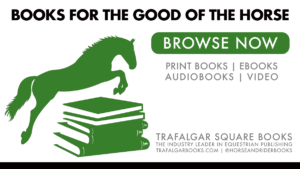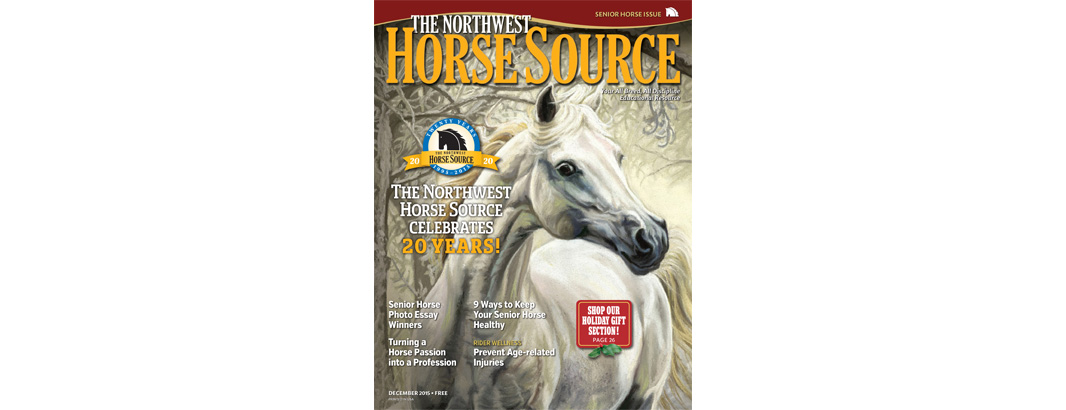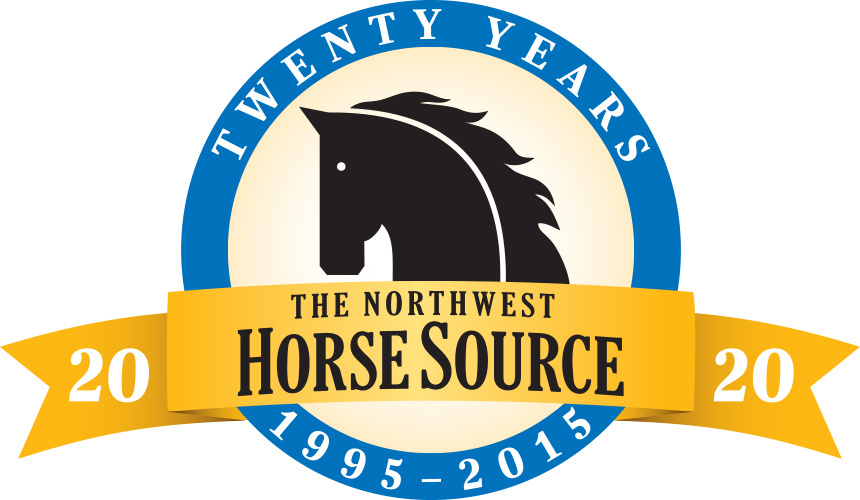Celebrating 20 Years of an Equine Lifestyle
In her quest to live the full, passionate life, Karen Pickering has encountered significant challenges and obstacles.
by Catherine Madera and Karen Pickering
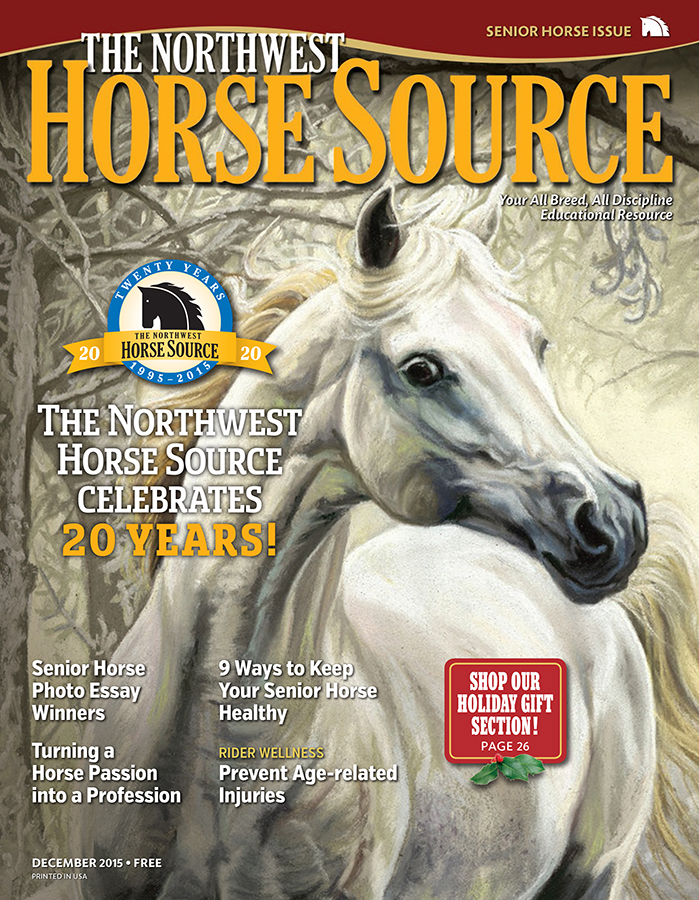
One of the best quotes describing the equine lifestyle comes from Ralph Waldo Emerson: Riding a horse is not a gentle hobby, to be picked up and laid down like a game of solitaire. It is a grand passion. It seizes a person whole and once it has done so, he/she will have to accept that his life will be radically changed.
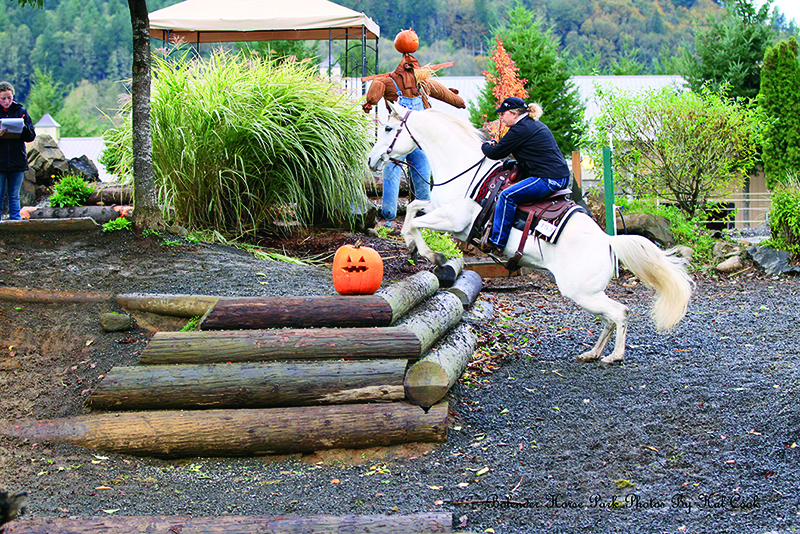
Twenty years ago, the “grand passion” manifested in Karen Pickering’s life in the birth of this magazine. For a horse lover, it was the ultimate dream: To make a living—and a life—centered around horses and the horse community. Though Karen had no experience in the difficult world of publishing, she applied herself to learning the way she had applied herself to riding her first, ill-tempered horse Brandy—with enthusiasm, determination and commitment.
Most horse lovers would describe themselves as “passionate,” using what is probably the most common understanding of this surprisingly complex word: an intense desire or enthusiasm for something. Fewer would probably apply a deeper meaning: to suffer for; martyrdom; agony. This December, as we celebrate two decades of publishing the Northwest Horse Source, we will explore several facets of the passionate life. I hope you will be inspired by hearing, in Karen’s own words, the ways she has won, lost and continued to persevere in her dream. May it add fuel to the fire of your own equine-related business goals and dreams.
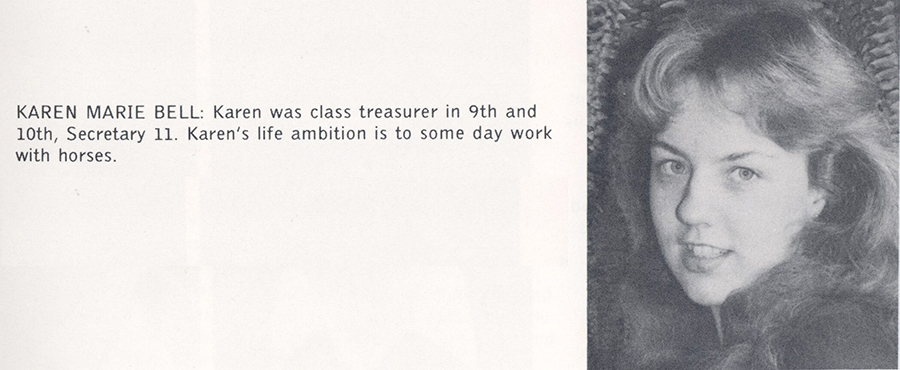
Even in high school you had a dream to work in the horse industry. Did you really think it would happen, why or why not?
Absolutely. I knew I was going to work with horses. I was either going to be a horse trainer or veterinarian. Interesting how it actually manifested itself.
Did you enjoy corporate life or feel restless for pursuing your passion?
I enjoyed corporate life for a couple of reasons: 1) structure; 2) I loved the people. However, I was restless in the sense of wanting to work in the horse world in any capacity.
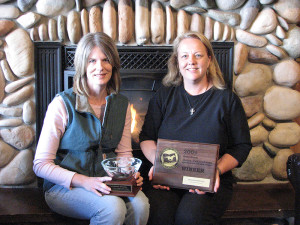
When did you begin feeling like you were “living the dream”?
When I started doing this full time and actually making a paycheck, and upon attending my first American Horse Publications convention. AHP was a wonderful experience and gave traction to my vision.
Tell me about your early insecurities and failures in publishing. How did you persevere?
I knew nothing about publishing and had only designed and produced a company newsletter for the brokerage firm I worked for. I spent plenty of money making mistakes, but had the support of family and friends who encouraged me to follow my dream. In retrospect, I should have gone to work in the industry first to learn the ropes. I knew without a doubt this was my calling though. Failure was not an option. I just kept getting back up every time there was a failure, considered it my education and focused on the ultimate prize of following my passion.
Did you have any early mentors?
Mike French. Mike helped me start the magazine, gave me advice and came along side me when I really needed the help. I still keep in touch with Mike today.
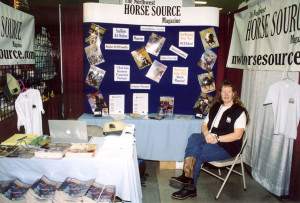
Tell me about the growth of the magazine—was it steady? When was the business at its best?
The growth was pretty steady. January 2001 was the biggest magazine at around 90 pages. In 2003 we moved from a home office to a 400 square foot office in downtown Blaine. Things stayed pretty steady for several years despite losing my graphic designer and dear friend Mary Trout in June of 2006. The quality of the magazine grew and we hired staff to continue growing. In 2008 we had 6 employees including myself.
What were the significant low points/slumps in the business and did you ever consider giving it up?
I never gave it a thought until this past year with Mark’s health issues. There just isn’t any option right now other than to continue. I love what I do and it’s a significant part of my purpose.
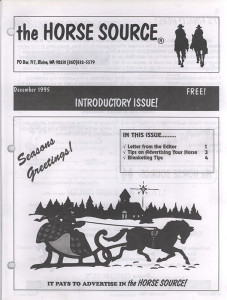
How has publishing changed since you began 20 years ago?
It’s changed a lot! I started on a PC and Pagemaker, sending files to the Lynden Tribune. Photos were done in halftones and film was used to produce the magazine before it went to press. It was much more difficult, to say the least. Driving a disk over to the printer was pretty standard. Now we upload the entire magazine to the printer’s FTP site and the whole process takes a week, from the printer receiving the files electronically to delivery to our warehouse for distribution.
Have changes in the industry itself impacted the magazine?
Yes, a great deal. With high end smartphones that can take video and pictures along with social media to share ideas, sell products and personal items to research magazines are no longer the primary way horse people advertise. We are now evolving into “multimedia” and learning an entirely new way of being a publisher.
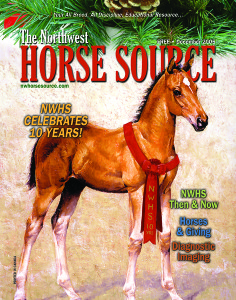
If you knew then what you know now, would you still do this business?
Absolutely. I have met the coolest people and been to some of the most incredible places because of the business.
A year ago Mark, your husband and a significant part of the publication, had a stroke. How has this affected you personally and professionally?
It was devastating. He not only had a stroke and had to go through rehab but he’s continued to have health issues from diabetes related symptoms to several heart procedures. We live our lives from dr. appointment to dr. appointment. This is probably the lowest that my sales have been in years. I just haven’t had time to work the business full time. I miss riding and doing horse stuff but somehow people have been placed in my life that have cared for us, helped with our small farm, cleaned house, prepared food/meals, taken care of my horses when we were at the hospital and helped us financially so we could continue publishing.
Is there anything unique about your business that helps you get up every morning, despite the current challenges you face?
I love the commute! I look forward to learning new things and capturing all the exciting things that are happening in the world of media. My faith in God has sustained me and taught me to live one day at a time and be grateful for what I have in my life. It’s amazing how many blessing we have when we can find happiness in the smallest and simplest things.
What do you love about your business?
The people and participating in events, especially when April can accompany me!
What is your least favorite part of this business?
Accounting.
What has been the hardest thing(s) to overcome in the last 20 years?
Taking things personally. I’m a people pleaser and when someone is unhappy with me it’s devastating. Lately, the hardest thing has been asking for help and being specific about what I need.
What would you tell someone who wants to succeed in the horse business/start a horse-related business?
It’s certainly not the easiest industry, but from my perspective it is by far the most rewarding. I would definitely intern with a trainer or work in the particular field you want to go into before jumping in. It took me way more time to gain traction coming from a place of no industry knowledge. I should have worked for a newspaper or magazine to gain work experience—getting involved in your industry is paramount! My business really ramped up when I joined American Horse Publications. You must have a clear vision of what you would like your business to look like and clear goals to stay on track. Having your own horse business means long hours and small paychecks, at least to begin with. And, without passion, your success is unlikely. Lastly, when you reach the point of being able to help others reach their dreams it is incredibly rewarding. I love what I do and don’t regret it for a minute.
Having opened with a quote, it seems fitting to close with a favorite one from Karen: Formal education will make you a living; self education will make you a fortune. —Jim Rohn
Published in December 2015 Issue

The Northwest Horse Source is an independently owned and operated print and online magazine for horse owners and enthusiasts of all breeds and disciplines in the Pacific Northwest. Our contemporary editorial columns are predominantly written by experts in the region, covering the care, training, keeping and enjoyment of horses, with an eye to the specific concerns in our region.



